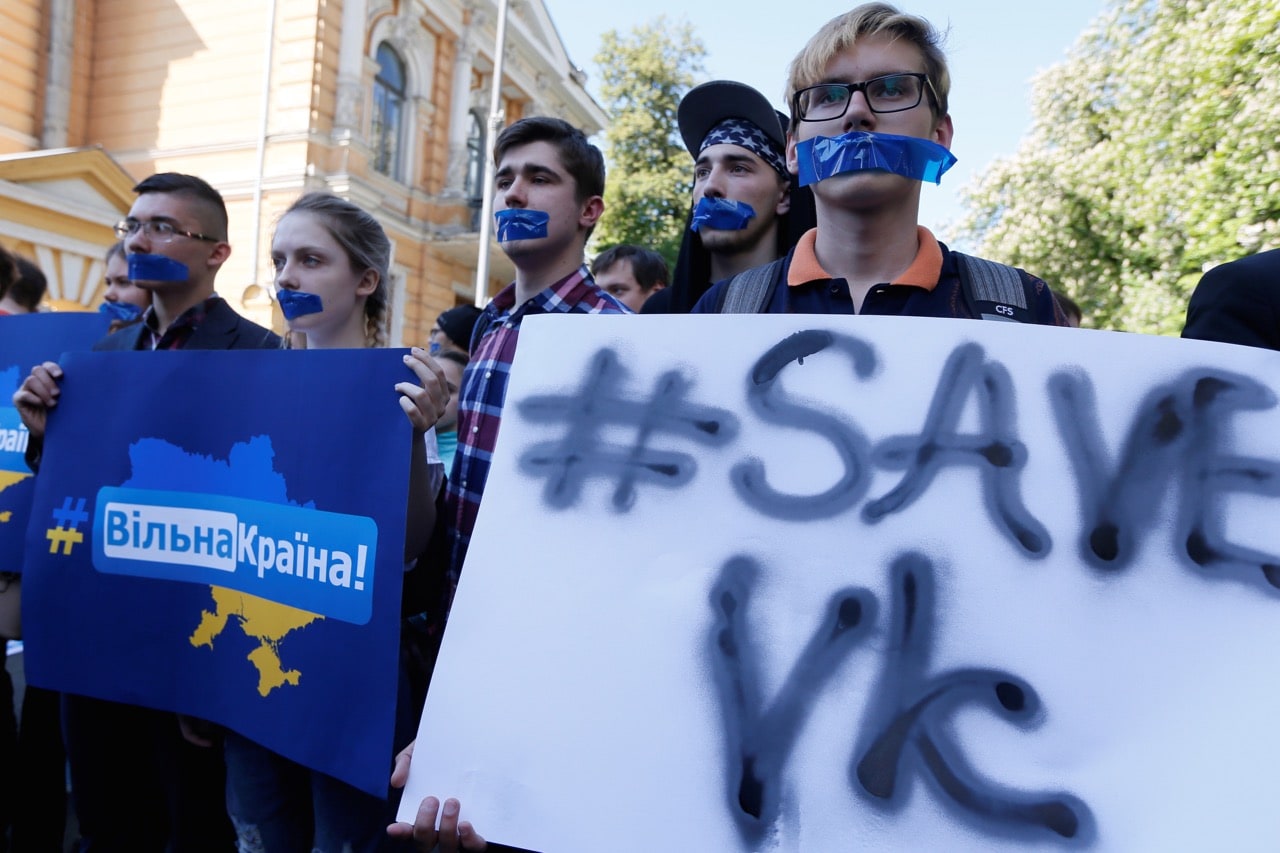Russian media websites, including some of the most popular social media services, were recently blocked by Ukraine after the government deemed them to be working against its national interest.
Modern conflicts are fought both in the dirt and on the communications battlefield. The proliferation of propaganda and ‘fake news’ – uploaded online or broadcast over the airways – makes it extraordinarily difficult for those involved in conflict to strategise, maintain morale or even know exactly what is going on within their borders. For this reason, governments have a marked tendency to overreact when dealing with the free flow of information in fraught times: security issues nearly always trump free expression concerns.
This was recently illustrated in Ukraine, where, the Ukrainian Institute of Mass Information (IMI) reported, sanctions were imposed on several Russian media outlets considered to be working against Ukraine’s national interests. The sanctions were decided upon by the National Security and Defence Council of Ukraine in April 2017 and put into force by presidential decree this week.
The move has provoked broad condemnation from IFEX members who argue that it will have a disproportionately negative effect on Ukrainians’ free expression and access to information.
The decree is actually part of an expansion of Ukrainian sanctions imposed as a response to Russia’s illegal annexation of the Crimean peninsula in 2014. According to the Committee to Protect Journalists (CPJ), the decree will apply to 468 companies and 1,228 individuals, including Russia’s most popular news and social media services, such as the RIA Novosti news agency and the broadcasters Channel One, VGTRK, Zvezda, TNT, Ren TV, TV-Center, NTV-Plus, RT and RBC. The Russian social networking sites Odnoklassniki and VK (formerly known as VKontakte) will also be hit. These sites are immensely popular in Ukraine where (as Isaac Webb on the Global Voices website reports) Odnoklassniki and VK had 11 million and 27 million users respectively in 2014.
IMI provides a list of the kinds of restrictions the media outlets will face. Briefly, they involve the “blocking of assets, suspension of economic and financial obligations, limitation or termination of the provision of telecommunication services and use of public telecommunication networks.”
The sanctions will stay in place for up to three years.
In their statements on the decree, both CPJ and ARTICLE 19 highlight the broader, worsening environment for free expression in Ukraine, pointing specifically to the barring of certain Russian journalists from the country and to an intensification of the crackdown on social media users who express “separatist views.”
But there is some question as to how effective the new sanctions will be. IMI’s executive director, Oksana Romaniuk, told Human Rights Watch of her doubts regarding the decree’s enforceability without specific changes to the law. And on the Global Voices website, Kevin Rothrock reports that Russia is already interfering in the affair: news channel Rossiya-24 has been providing on-air instructions to its viewers on how to circumvent the media ban.
Those IFEX members who issued statements were unanimous in calling for the ban to be lifted immediately.
Nina Ognianova, Central Asia Programme Coordinator at the Committee to Protect Journalists, said: “Attempts to ban Russian media in Ukraine are antidemocratic, are likely to be ineffective, and could easily backfire by making the government appear afraid of allowing citizens to make up their own minds. We call on Ukrainian President Petro Poroshenko to reverse this misguided order and to cease interfering with Ukrainian citizens’ right to receive information and opinion from a range of sources.”
Katie Morris, Head of Europe and Central Asia for ARTICLE 19, said: “The decision to block access to social networking sites is a serious violation of the right to freedom of expression. Website blocking is a severe form of censorship: it catches legitimate content at the same time as content that may be legitimately prohibited. In this case, blanket blocking of some of the most popular sites within Ukraine will inevitably result in unnecessary and unjustifiable restriction on freedom of expression, affecting millions of people within Ukraine.”
Tanya Cooper, Ukraine researcher at Human Rights Watch, called for an international response. She said: “This is yet another example of the ease with which President Poroshenko unjustifiably tries to control public discourse in Ukraine. Poroshenko may try to justify this latest step, but it is a cynical, politically expedient attack on the right to information affecting millions of Ukrainians, and their personal and professional lives. In a single move Poroshenko dealt a terrible blow to freedom of expression in Ukraine. It’s an inexcusable violation of Ukrainians’ right to information of their choice, and the European Union and Ukraine’s other international partners should immediately call on Ukraine to reverse it.”
